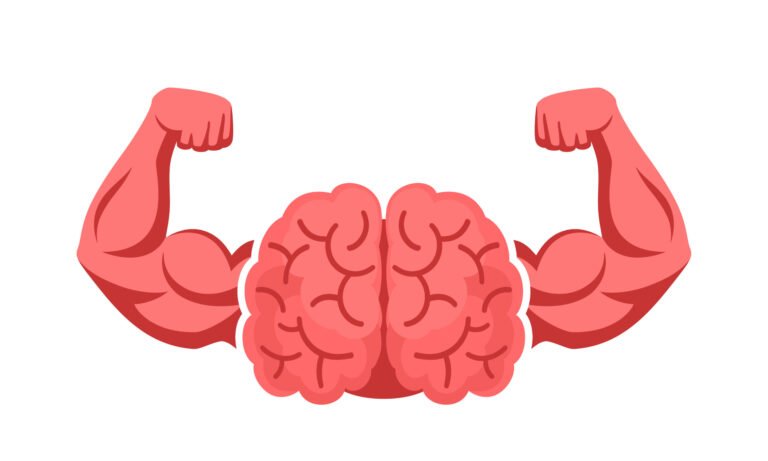But in reality, it is about how well you can activate and control the muscles you are targeting. It is about being able to isolate and contract the specific muscle group without compensating with other muscles. This is crucial for maximizing muscle growth and strength gains.
How to Improve Mind-Muscle Connection
Now that we understand that pain is not the goal with mind-muscle connection, let’s talk about how to actually improve this connection. Here are some tips:
- Focus on the muscle: Before starting an exercise, mentally focus on the muscle you are targeting. Visualize it contracting and working throughout the movement.
- Use lighter weights: Sometimes using lighter weights can help you focus more on the muscle contraction rather than just moving the weight from point A to point B.
- Slow down the tempo: Control the movement and focus on the muscle working by slowing down the tempo of your repetitions.
- Isolate the muscle: Choose exercises that isolate the muscle you want to target, rather than compound movements that work multiple muscle groups.
- Engage your mind: Stay present during your workout and really concentrate on the muscle you are working. Avoid distractions and focus on the mind-muscle connection.
By implementing these tips and focusing on improving your mind-muscle connection, you can enhance your workouts and see better results in terms of muscle growth and strength gains. Remember, it’s not about how much pain you feel, but how well you can activate and control your muscles during exercise.
So next time you hit the gym, focus on the quality of your movements and the control you have over your muscles. Your mind-muscle connection is key to unlocking your full potential in the gym.
And remember, pain is not the goal – proper muscle activation and control is.
Mind-Muscle Connection: Understanding Control Over Pain
When it comes to working out and building muscle, many people believe that the more pain and discomfort they feel during an exercise, the better the mind-muscle connection. However, this is a common misconception. The true essence of the mind-muscle connection lies in the ability to control the muscles you are working with, not in experiencing pain.
The Importance of Control
It is crucial to understand that the mind-muscle connection is all about how well you can control the muscles while exercising. This means being able to engage and disengage the muscles effectively throughout the entire range of motion. For example, if you can contract a specific muscle without feeling excessive discomfort or pain, that demonstrates a strong mind-muscle connection.
On the other hand, if you are experiencing a lot of pain or cramping during an exercise, it is likely a sign that you are lacking control over the muscles. Pain and discomfort are not indicators of a good mind-muscle connection; they are signals that something is not quite right with your form or technique.
Understanding Sensation
Many people mistakenly associate pain and cramping with areas that need more work. However, these sensations are often a result of improper alignment or lack of stability during an exercise. When the body feels like it is not in control, it will respond with pain or cramps as a protective mechanism.
It is essential to differentiate between weakness due to lack of control and weakness that requires more work. By aligning the exercise correctly with your body and focusing on control, you can build strength and stability in a more effective way.
Conclusion
Building a strong mind-muscle connection is not about pushing through pain or discomfort. It is about mastering control over your muscles and executing exercises with precision and stability. While it is normal to feel some muscle fatigue during a workout, excessive pain and cramping are not indicators of a successful mind-muscle connection.
By focusing on control and proper form, you can enhance your mind-muscle connection and achieve better results in your workouts. Remember, it’s not about the pain; it’s about the control.
Thank you for reading our article!
– Terry Asher
the title: “The Benefits of Meditation for Mental Health”
In today’s fast-paced world, many people are constantly feeling stressed, anxious, and overwhelmed. With the pressures of work, family, and other responsibilities, it can be easy to neglect our mental health. However, incorporating meditation into our daily routines can have a profound impact on our overall well-being.
Meditation is a practice that involves focusing the mind on a particular object, thought, or activity to achieve a state of mental clarity and emotional calmness. It has been practiced for thousands of years in various cultures and religions, and has been shown to have numerous benefits for mental health.
One of the key benefits of meditation is its ability to reduce stress and anxiety. By focusing on the present moment and letting go of negative thoughts and emotions, meditation can help calm the mind and promote a sense of relaxation. This can in turn lower levels of the stress hormone cortisol in the body, leading to a reduced risk of anxiety and depression.
In addition, meditation has been found to improve focus and concentration. By training the mind to stay present and attentive, meditation can enhance cognitive function and increase productivity. This can be particularly beneficial for those who struggle with attention deficit disorders or have difficulty staying focused on tasks.
Furthermore, meditation can improve self-awareness and promote a greater sense of self-compassion. By becoming more in tune with our thoughts and emotions, we can better understand ourselves and develop a more positive relationship with ourselves. This can lead to increased self-esteem and a greater sense of well-being.
Overall, incorporating meditation into our daily routines can have a profound impact on our mental health. By reducing stress and anxiety, improving focus and concentration, and promoting self-awareness and self-compassion, meditation can help us lead happier, more fulfilling lives. So why not give it a try and see the positive effects it can have on your mental health?

